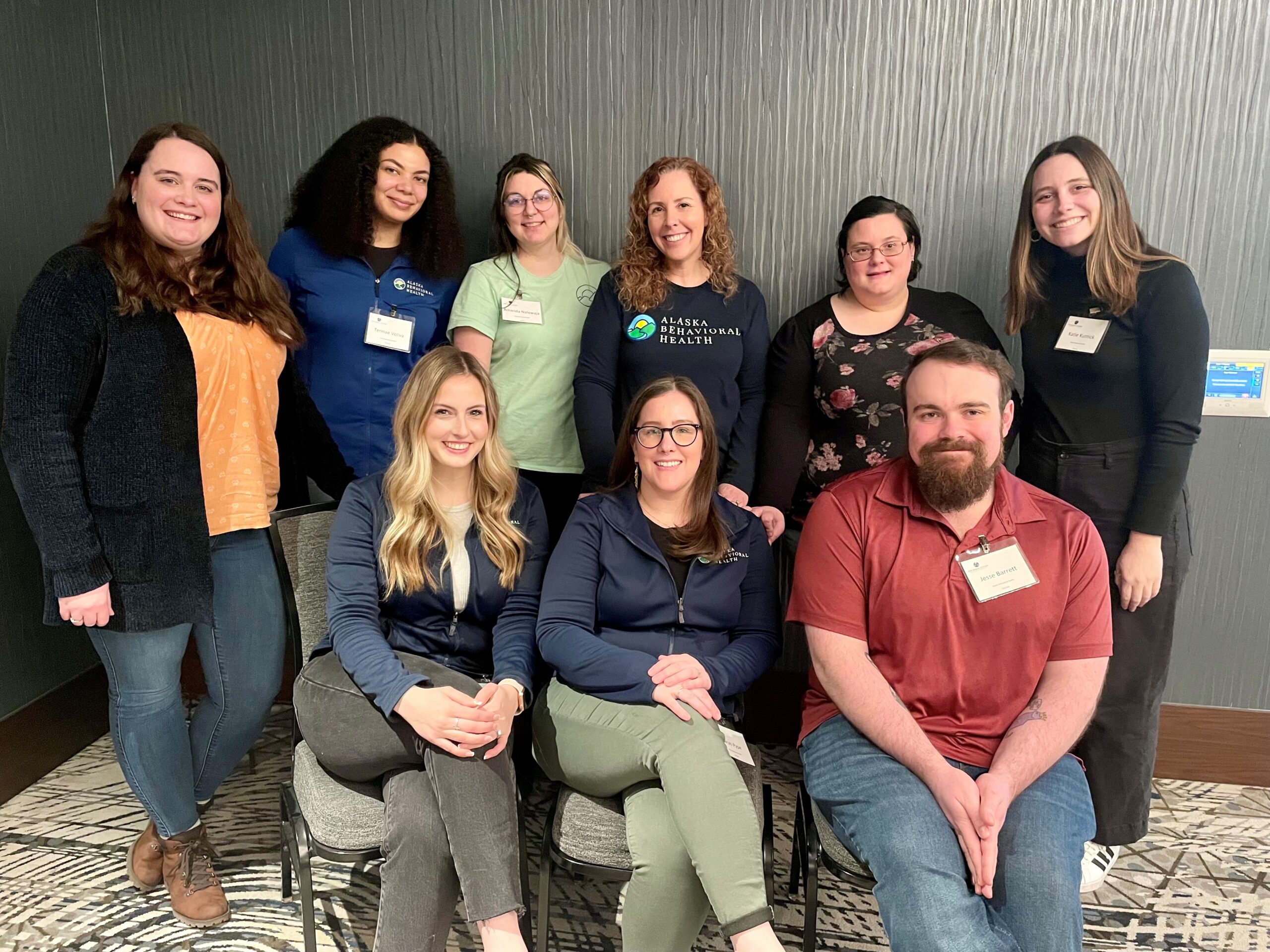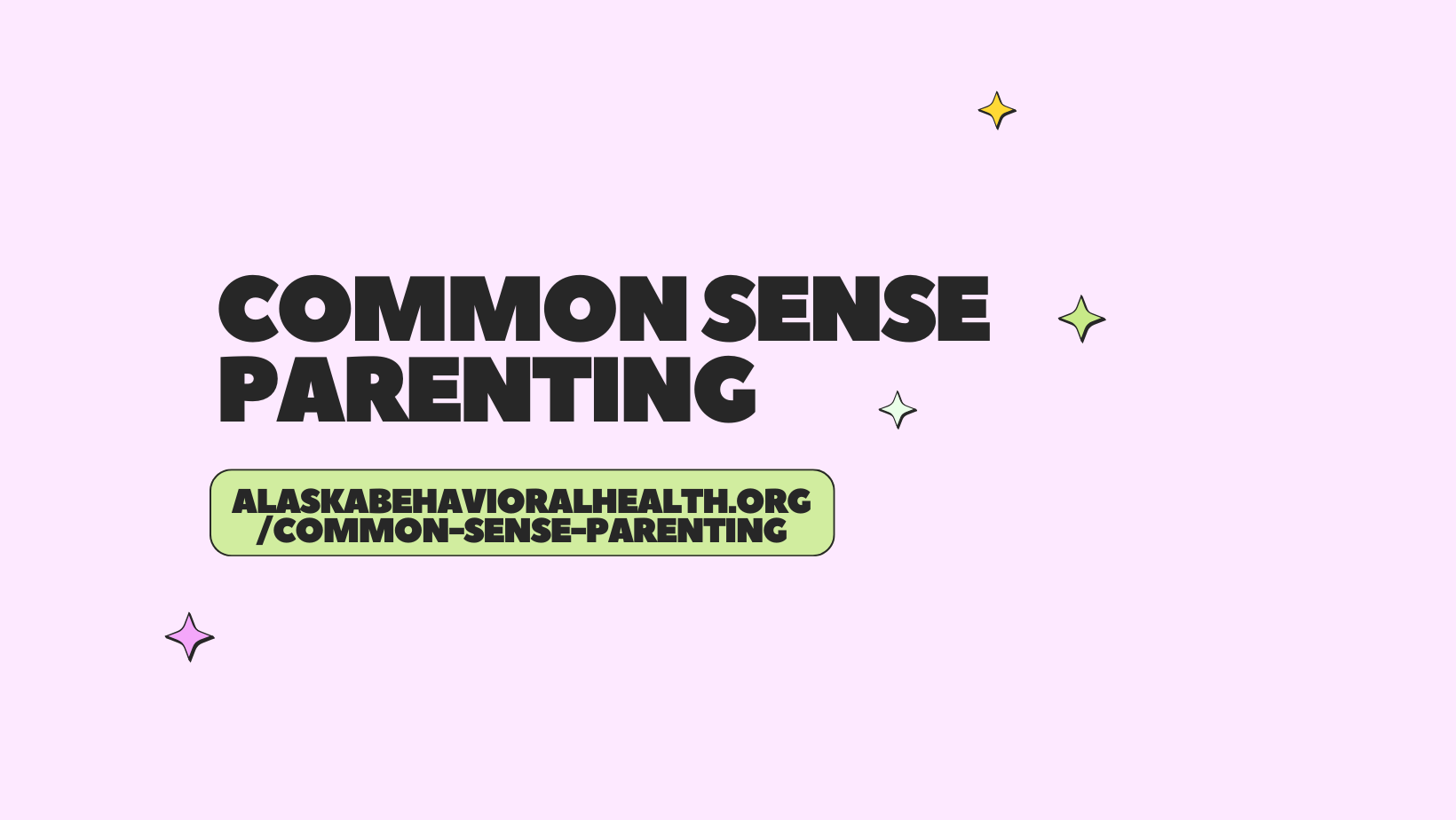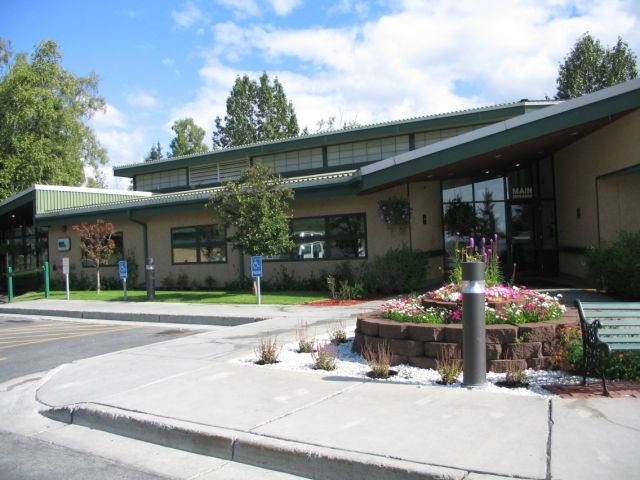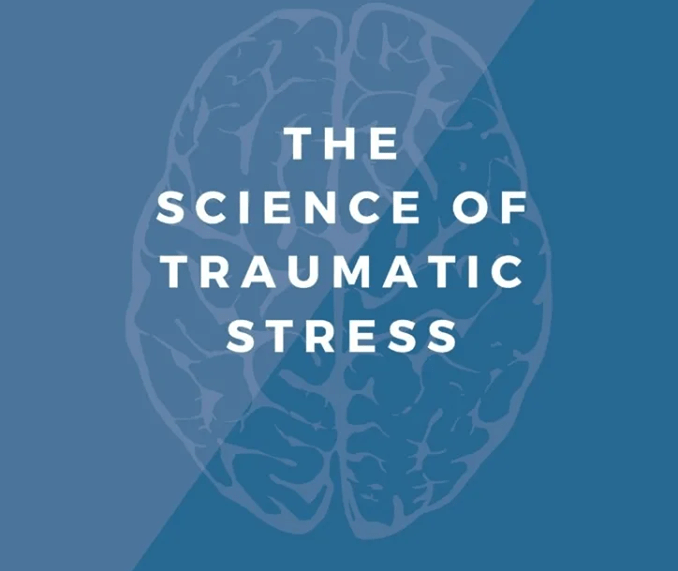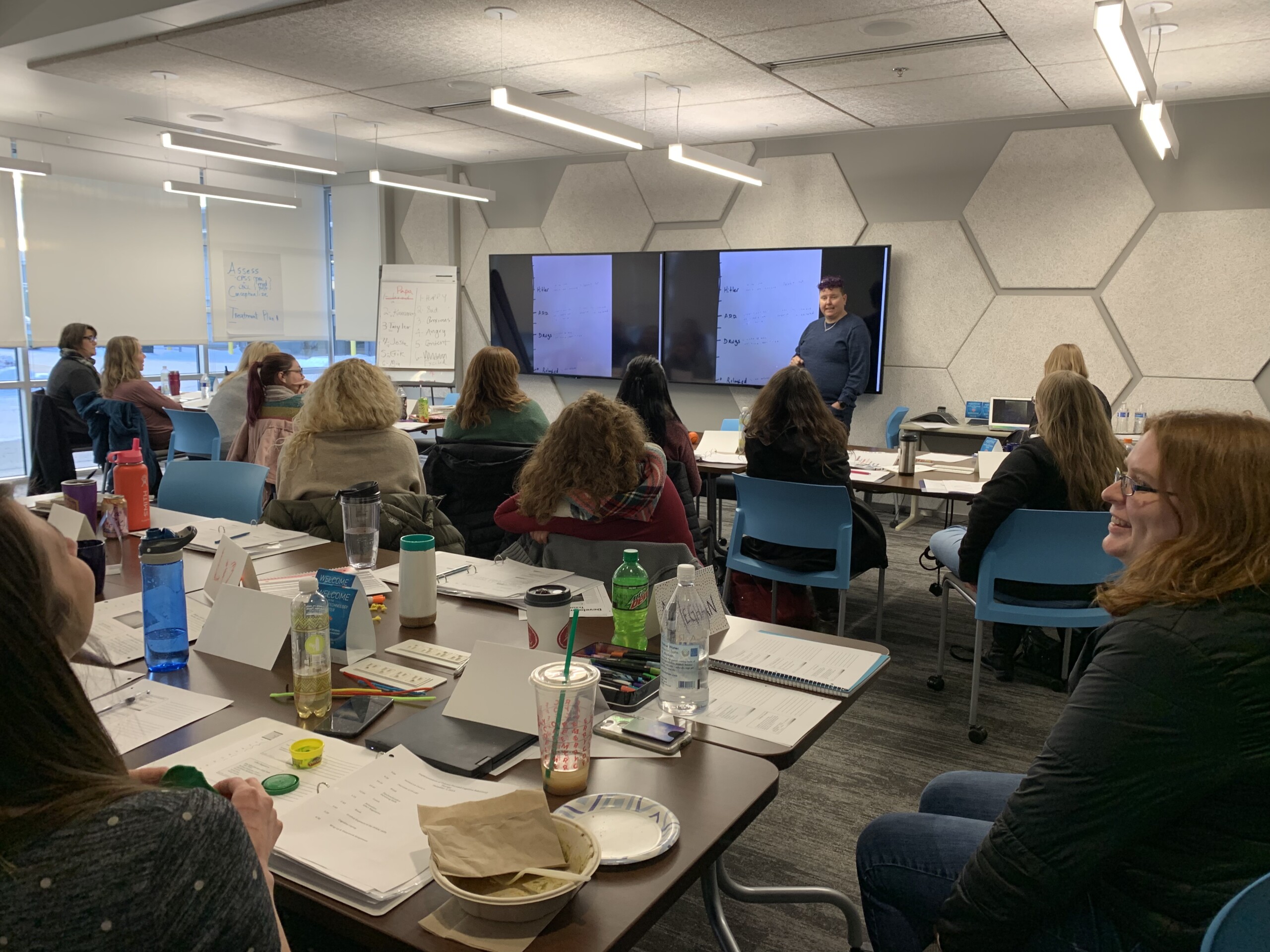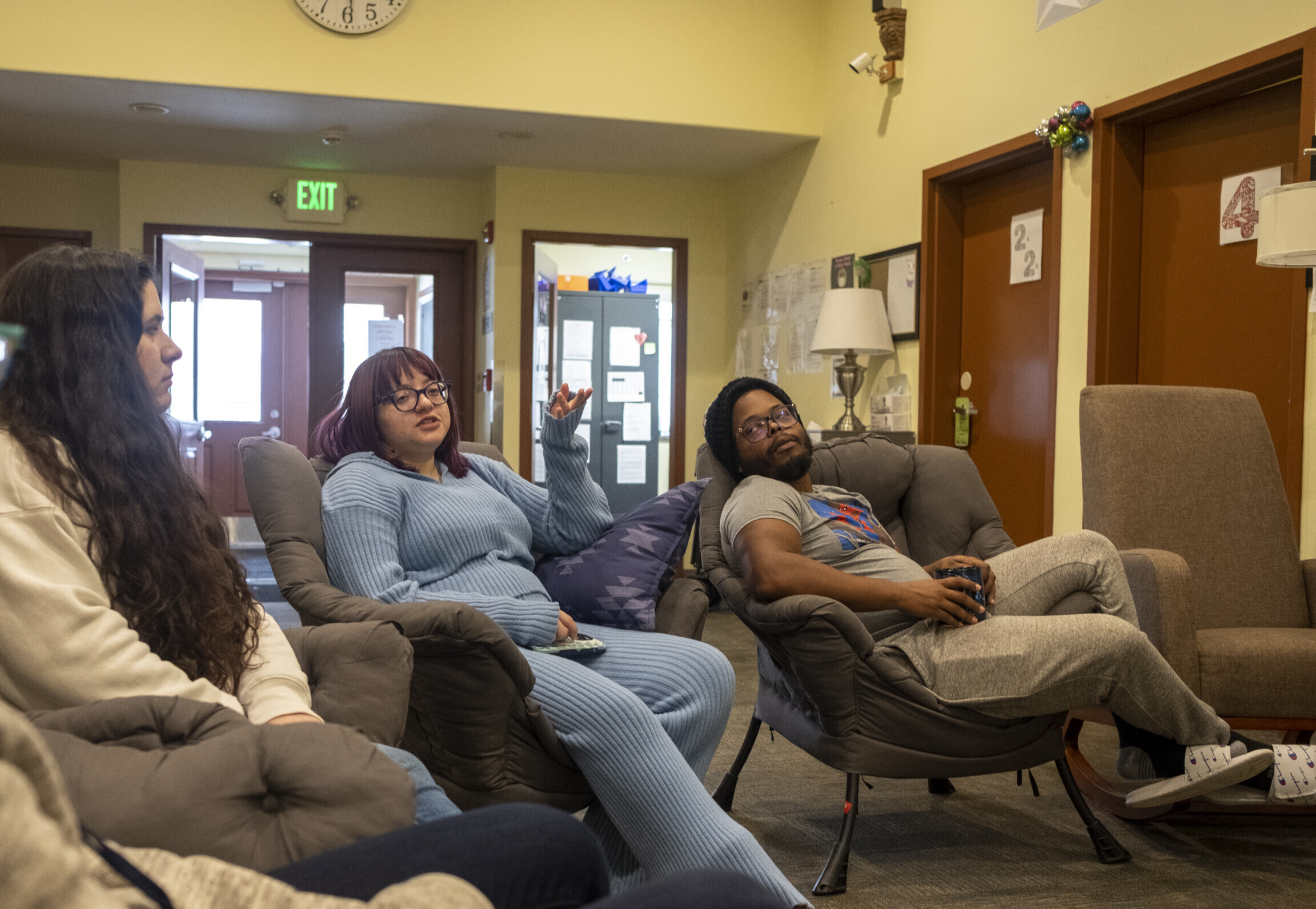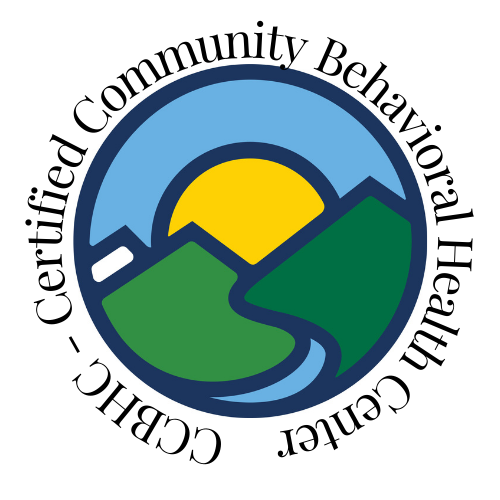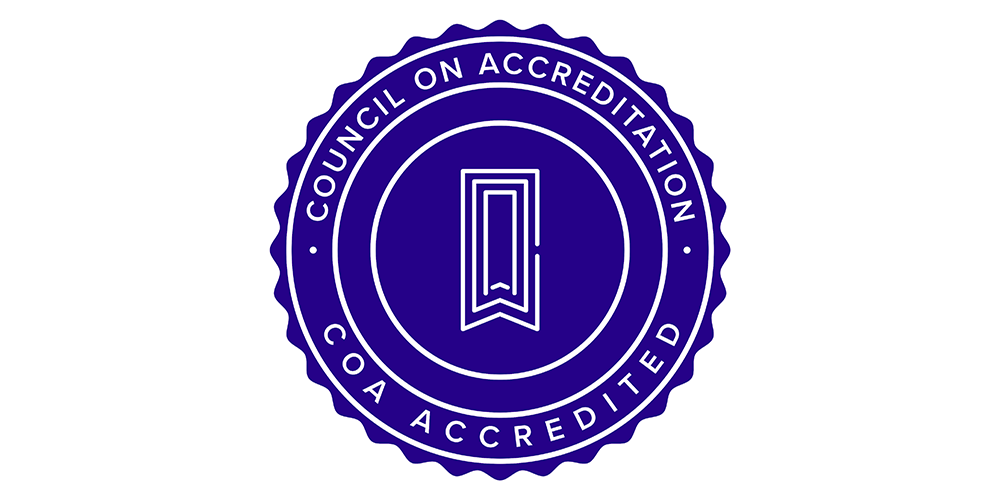Staying calm in tough situations
Deanna H. is really good at staying calm in challenging situations. It’s a skill she uses a lot in her role as a peer support specialist with our Intensive Case Management [ICM] team in Anchorage. She draws on her own experiences dealing with mental health and substance use, and thinks to herself, “How would I want someone to react if I were upset?” So, she listens, asks questions, and tries to re-direct to de-escalate tense situations. And she makes sure to provide a good dose of reassurance, letting clients know “we can fix this together.”
“We can fix this together”
– Deanna H
Building rapport
Peer support specialists are an important part of the ICM team. The ICM team works with some of our highest needs clients who are often struggling with housing and daily life functions. Peers draw from their own experiences and connect with clients more personally than other clinical staff, which means they often build rapport with clients faster. One key role is just to be there to listen to clients. Deanna says, “That’s important, because they want to be heard and feel like they are supported. “
Peers play a unique role on the team
Team coordinator Annie Murray says peers play some specific and unique roles.
- They often attend medical appointments with clients. Deanna says a doctor’s office can be scary and clients like the extra support. Murray elaborates: “Communication between clients and medical providers can be challenging; they aren’t always hearing each other well. Peers help clients learn to advocate for themselves in that setting.”
- Peers have insightful input at team meetings, seeing things from a different perspective from other staff.
- From their own recovery journeys, peers often know about community resources.
- In crisis situations, peers connect quickly, de-escalate, and help connect clients to the next resource they need to address the problem – whether that’s the hospital, police, or their clinician.
Meeting client needs
The Intensive Case Management team is organized into mini teams, each made up of a clinician, case managers, and a peer. The mini-team structure allows for close collaboration among team members to stay informed about how clients are doing.
Finding Success
ICM team clients are often coming out of Department of Corrections custody, or hospital stays. They may live in an Assisted Living facility or be un-housed. Team coordinator Murray says for this high-needs population, the successes are sometimes small:
- A client gets a housing voucher and moves into stable housing
- A client re-connects with a family member and building their natural support system
- A client consistently takes their medications when that has not always been true.
And Murray says sometimes it may be as small as, “they were happy to meet with us, and make a plan to meet again.”
As for Deanna, she measures success by connections. “It feels pretty great that people can trust you like that, and they are comfortable enough to share.”
“It feels pretty great that people can trust you like that, and they are comfortable enough to share.”
-Deanna H
Learn more about Peer Support
Meet some of other peer support specialists on our YouTube channel.
Our Peer Support program offers trainings throughout the year for those interested in becoming peer support specialists.

